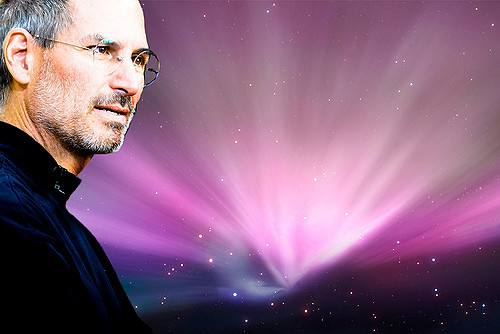(单词翻译:单击)
Things Fall Apart
万物解体
When Jobs unveiled the NeXT computer in 1988, there was a burst of excitement.
当乔布斯1988年首度推出NeXT计算机时,引起了热烈反响。
That fizzled when the computer finally went on sale the following year.
可是到第二年计算机最终上市时,市场热情却退去了。
Jobs's ability to dazzle, intimidate, and spin the press began to fail him, and there was a series of stories on the company's woes.
乔布斯那种让媒体眼花缭乱、心生敬畏、趋之若鹜的才能开始失效,负面新闻也层出不穷。
"NeXT is incompatible with other computers at a time when the industry is moving toward interchangeable systems,"
“NeXT跟其他计算机不兼容,而当时,这个行业正向操作系统可互换的方向发展,”
Bart Ziegler of Associated Press reported.
美联社记者巴特·齐格勒报道说,
"Because relatively little software exists to run on NeXT, it has a hard time attracting customers."
“因为相对来说,可以在NeXT上使用的现有软件很少,所以它很难吸引消费者。”

NeXT tried to reposition itself as the leader in a new category, personal workstations,
NeXT试图将自己重新定位为一个新产品类型--个人工作站的领跑者,
for people who wanted the power of a workstation and the friendliness of a personal computer.
目标用户是那些希望兼顾工作站的强大功能与个人计算机的友好性的人。
But those customers were by now buying them from fast-growing Sun Microsystems.
但是这类消费者当时已经从快速发展的Sim公司买到了这样的产品。
Revenues for NeXT in 1990 were $28 million; Sun made $2.5 billion that year.
NeXT在1990年的收入是2800万美元,而同年Sun公司的收入是25亿美元。
IBM abandoned its deal to license the NeXT software, so Jobs was forced to do something against his nature:
IBM放弃了向NeXT授权软件的协议,所以乔布斯被迫做了一件违背他本性的事情:
Despite his ingrained belief that hardware and software should be integrally linked,
虽然他根深蒂固地认为硬件和软件应该是一个不可分割的整体,
he agreed in January 1992 to license the NeXTSTEP operating system to run on other computers.
但是在1992年1月,他同意授权NeXTSTEP操作系统在其他品牌的计算机上运行。


